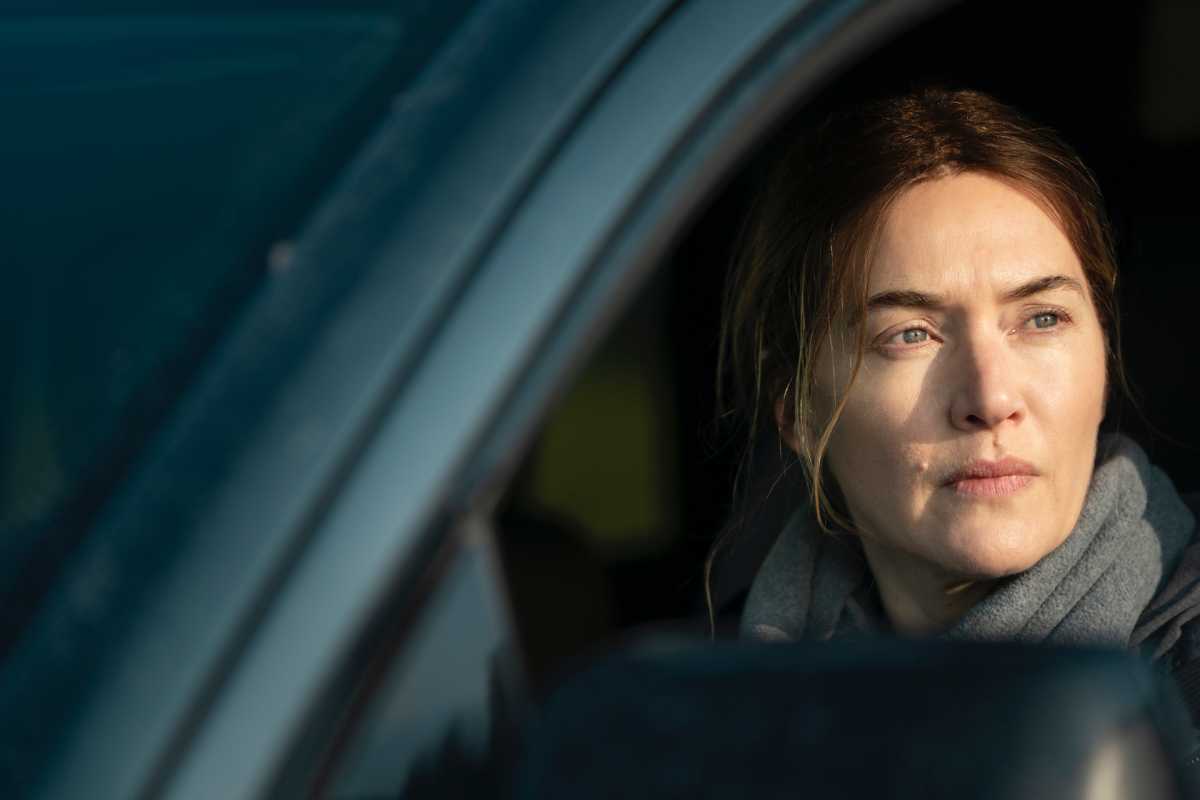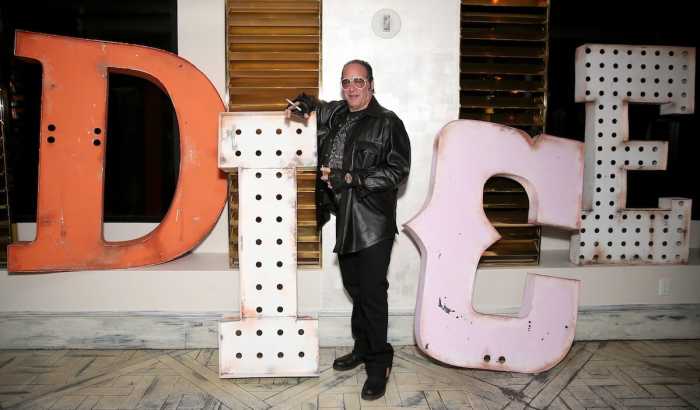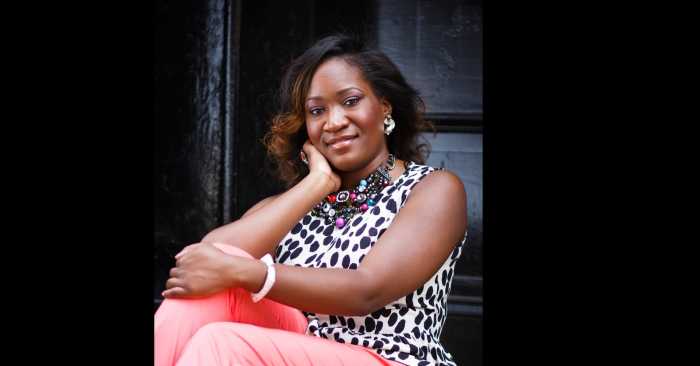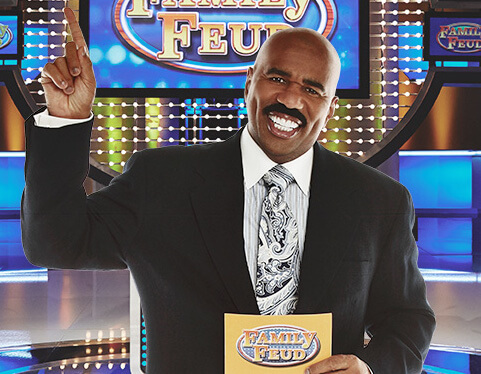Everyone can get on board with a compelling mystery surrounding a whodunnit, especially when you have big names such as Kate Winslet and Evan Peters signed on. But, in Brad Ingelsby’s latest limited series premiering this weekend on HBO, ‘Mare of Easttown,’ audiences will get a lot more than a crime-centric suspense ride, they’ll get a peek into a community full of characters in an honest way.
The story is centered around Mare, the only detective in the fictional Easttown with not so fictional aspects that locals will recognize immediately. After a young girl goes missing and one is found dead a year after an eerily similar circumstance with another local woman, Mare is thrown into a tangled web of secrets and lies from her neighbors and family that she didn’t quite sign up for.
Ingelsby grew up in the area, and that’s apparent in ‘Easttown’—from the genuine Delco accent to the blue-collar feel—is not just the title character, but her family and neighborhood as a whole. That’s a tune that Ingelsby has been singing in almost all of his work such as 2018’s ‘American Woman’, but this series hits a bit differently.
Ingelsby sat down to give a deeper dive into what makes ‘Mare of Easttown’ not just a riveting crime show, but a character study into what makes a tight-knit community—albeit full of secrets— so entertaining.
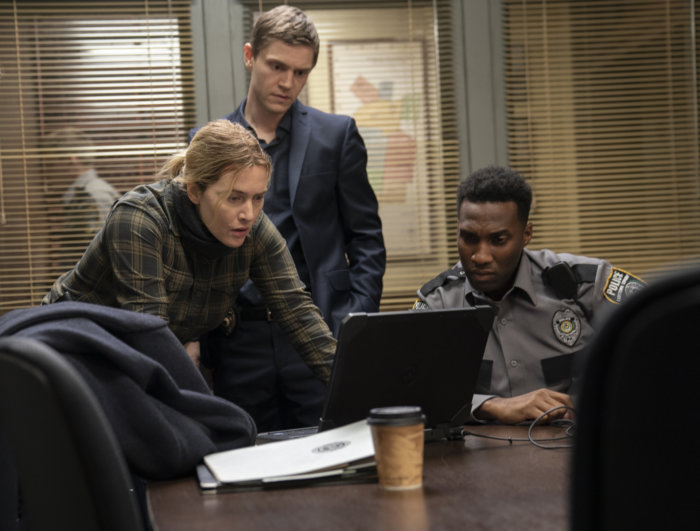
Where did the idea for this series come from?
I think it started with Mare really. [She] was a character I had in my head: The only detective at this small department in a small town, and I was really interested in her as a character and this idea of this women who, as a kid, really had brought a moment of glory to a community that doesn’t really have a lot of moments of glory. At that point she was held as a hero, but now that idea has started to fade and the people that embraced her are starting to turn on her— it was sort of like how is this women going to adapt? What is that going to look like? How is she going to carry on in a community that is turning on her and how is she going to confront the trauma in her life that she’s been avoiding? So, it was that character that was interesting to me, and the more time I spent with Mare, the more interested in her I became.
And also, I think just really a desire to write a story about home. Easttown in the story is an amalgam of places—Drexel Hill, Aston, Springfield—places around where I grew up. So it was really wanting to write about home and how I grew up. I didn’t grow up with a cop, I didn’t grow up with a murder investigation but I think the conversation and the rhythms of life are honest with how I grew up in a town like this, and I wanted to capture honestly.
Aside from your ties here, what do you think makes this area and the people who live in it a good story?
I guess viewers will tell us if it’s a good story that’s interesting, but I think what I was interested in and what makes me happy when I make trips home is that there is a sense of duty to each other, and I really admire that. That’s not just towns in Pennsylvania, I’m sure there are communities all around the country that have this, but what I admire when I come home and spend my time with my relatives, my aunt and my cousins and family, is this sort of commitment to each other. It’s something that always kind of warms me up when I’m home, there’s a sense of I belong in this place and I belong among these people.
What’s interesting to me about the show is trying to portray these communities with a level of heroism. There is something heroic about having a commitment to your family and to your community and it’s something I was really interested in when I was drawing out the characters.
When you’re writing a crime drama, do you think the characters are what drives the story, or is it the suspense in the case?
I would say I was more interested in the characters while also being aware that the case itself should be compelling enough to bring people back. I think the reason people watch and have always watched crime dramas is because there is always an element of trying to outguess the creators, or trying to get ahead of them or get in the creator’s head. There’s a real entertainment value in that and I love that too—it’s why I love crime dramas. It was a mixture though, I wanted to explore these characters in an honest way and yet I was aware of the genre expectations. If you set up a mystery and you set up a whodunnit, you have to pay it off in a way that’s satisfying and emotional. So, I think it was really a mix of the two of them.
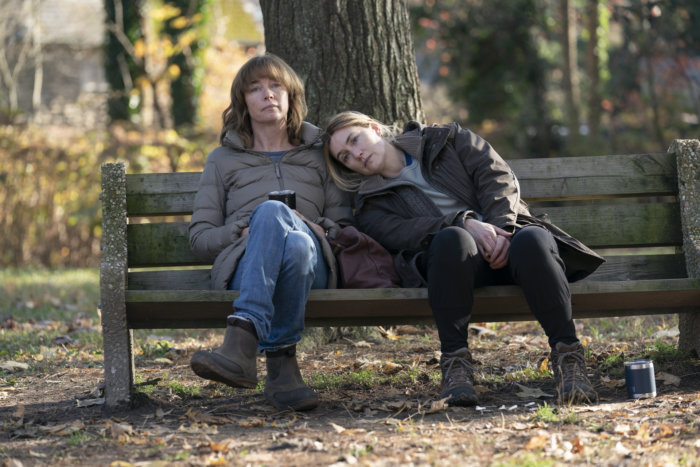
Mare is such a strong character. Why was Kate Winslet right for that role?
In terms of Kate taking the role, I think what appealed to her is how different Mare is from her. She looked at Mare on the pages thinking this woman is nothing like me, and that’s interesting. That’s the challenge, how do I get inside this character’s head who I don’t have a lot in common with? But, I think the way Kate did it is that she has such an appreciation and commitment to family, and Mare has a similar commitment.
Now, her ways of achieving that commitment are sometimes not moral or legal, but there is a commitment there that is admirable. There is a strong desire to put pieces of a fractured clan together in any way that she can. I think that’s what Kate was attracted too. If she had to find common ground with Mare, it was in this desire to have a family, and to keep the family connected in some way. I never expected Kate to do it, but she’s so dang talented and her commitment to get the details right and her vanishing act in the show, it still amazes me. As soon as she appears on the screen, you completely buy her. She completely vanishes in the role, and that’s a testament to Kate’s ability to transform and her commitment to take on a role completely.
Does having a story such as this play out over a course of a limited series rather than a feature work well?
Yeah, it’s Mare’s story and Mare is the person that we follow in this journey, but it really is a story about this community. If you have two hours to tell this story, I just don’t know if you’re able to get into the other characters as deeply as you would in a [film]. I think it gives you the opportunity to spend time with characters that you wouldn’t be able to spend time with during a movie. You’re just able to get into the life with people who aren’t intimately involved with the case, but have a part in the community and it just gives you way more latitude there.
It was great to get to spend time with characters who are outside of the main character, that was a great joy for me writing the series. I hope [audiences] look at the community and see the heroism that is on display with these characters and have a glimpse into this community that doesn’t often get the spotlight, but has a great deal of kindness, and duty and commitment. I think that’s an admirable quality that I hope comes across in the series.
‘Mare of Easttown’ premieres April 18 on HBO.



